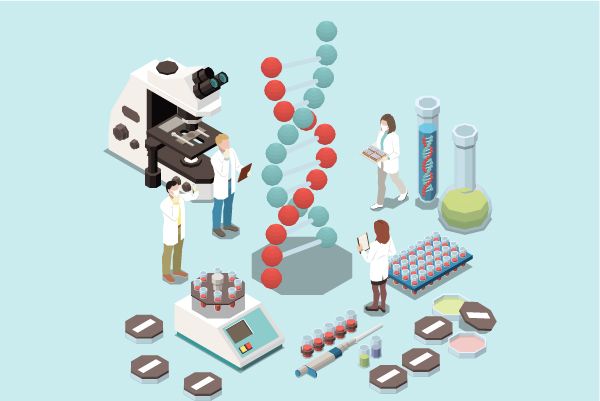Request Demo
Recent blog posts
Valuable Targets
3 min read
Deciphering proteasome Inhibitors and Keeping Up with Their Recent Developments
18 December 2023
Proteasome inhibitors are a type of medication that interfere with the activity of proteasomes.
Valuable Targets
3 min read
What are RANKL inhibitors and how do you quickly get the latest development progress?
18 December 2023
RANKL inhibitors are drugs that target the RANKL protein, crucial in bone metabolism. The future sees potential applications in treating bone-related disorders and certain cancers.
Valuable Targets
4 min read
Understanding PD-1 Inhibitors and Methods to Keep Abreast of Their Recent Developments
18 December 2023
PD-1 inhibitors are drugs that target the PD-1 protein, crucial for regulating immune responses. The future of PD-1 inhibitors is promising, with potential applications in treating various types of cancer.
Valuable Targets
4 min read
Understanding Renin Inhibitors and Methods to Keep Abreast of Their Recent Developments
15 December 2023
Renin inhibitors are drugs that target the enzyme renin, crucial in regulating blood pressure. The future sees potential applications in treating hypertension and other cardiovascular diseases.
Valuable Targets
4 min read
What are PARP inhibitors and how do you quickly get the latest development progress?
15 December 2023
PARP inhibitors are drugs targeting the DNA-repairing enzyme PARP1, used in treating ovarian and breast cancer. With ongoing R&D, their future use is expected to expand.
Valuable Targets
5 min read
Understanding Plasminogen activators Inhibitors and Methods to Keep Abreast of Their Recent Developments
15 December 2023
Plasminogen activators inhibitors are substances that regulate clotting by inhibiting enzymes that break down blood clots.
Valuable Targets
4 min read
What are PDE4 inhibitors and how do you quickly get the latest development progress?
15 December 2023
As an important regulator of cAMP signal transduction, the PDE4 family has become a research hotspot for various diseases in recent years.
Valuable Targets
5 min read
Understanding PD-L1 Inhibitors and Methods to Keep Abreast of Their Recent Developments
15 December 2023
PD-L1 inhibitors can specifically bind to PD-L1 on tumor cells to inhibit its expression, thereby enabling T cells, whose function has been suppressed, to restore their ability to recognize tumor cells.
Valuable Targets
4 min read
Deciphering NTRK Inhibitors and Keeping Up with Their Recent Developments
14 December 2023
NTRK fusion is a driving factor in various adult and pediatric cancers, especially in certain rare tumors like infantile fibrosarcoma and secretory breast cancer, where it is highly enriched. Therefore, the future application prospects of NTRK inhibitors in this area are very promising.
Valuable Targets
5 min read
Understanding PARP1 Inhibitors and Methods to Keep Abreast of Their Recent Developments
14 December 2023
PARP1 inhibitors are a class of drugs that target the PARP1 enzyme, crucial for DNA repair, and are particularly effective against certain cancers.
Valuable Targets
4 min read
What are PDE3 inhibitors and how do you quickly get the latest development progress?
13 December 2023
PDE3 inhibitors are drugs that target the PDE3 enzyme, crucial for regulating cellular signaling pathways.
Valuable Targets
4 min read
Deciphering PCSK9 Inhibitors and Keeping Up with Their Recent Developments
13 December 2023
PCSK9 inhibitors can significantly reduce LDL-C levels, and the development of related drugs is of great importance for the treatment of cardiovascular diseases.











